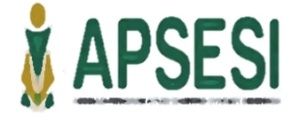Submissions
To make a submission, authors must log in or register on the journal’s submission platform.
Submission Preparation Checklist
As part of the submission process, authors are required to verify that their submission meets all of the following criteria. Submissions that do not comply with these guidelines may be returned to the authors for revisions.
- Originality: The submission has not been previously published nor is it currently under consideration for publication by another journal. If this is not the case, an explanation must be provided in the “Comments to the Editor” section.
- File Format: The submission file is in one of the accepted formats: OpenOffice, Microsoft Word, RTF, or WordPerfect.
- References: URLs for references, when available, have been provided within the document.
- Text Formatting: The manuscript is single-spaced and uses a 12-point font. Italics are used where appropriate (e.g., for emphasis), and underlining is avoided unless used for URLs. All tables, figures, and illustrations are embedded within the text at the relevant points rather than placed at the end.
- Adherence to Guidelines: The manuscript follows the stylistic and bibliographic requirements outlined in the Author Guidelines, which can be found in the journal’s “About the Journal” section.
- Blind Review Compliance: If submitting to a peer-reviewed section of the journal, authors must ensure that the submission adheres to the guidelines for a blind review process as outlined in the Ensuring a Blind Review section.
Author Guidelines
Tasharruf: Journal of Economics and Business of Islam - Author Guidelines
Aims and Scope
Tasharruf: Journal of Economics and Business of Islam is an international, peer-reviewed, open-access journal dedicated to providing a scholarly platform for research that bridges Islamic economic principles with real-world market behavior, institutions, and policies. The journal focuses on advancing knowledge in Islamic economics and fiqh al‑muʿāmalāt (Islamic commercial jurisprudence), with particular attention to empirical research that offers actionable insights for policymakers, regulators, and the business community. The journal prioritizes research that:
- Refines concepts in Islamic economics and fiqh al‑muʿāmalāt.
- Utilizes rigorous empirical methods to provide robust evidence.
- Offers actionable insights that benefit industries, regulators, and communities in Indonesia and other similar contexts worldwide.
Tasharruf publishes articles that engage with a wide array of themes within Islamic economics and business, including but not limited to:
- Islamic finance and banking
- Islamic microfinance and economic development
- Islamic social finance and ethical business practices
- The halal industry, including food, pharmaceuticals, and cosmetics
- Islamic business ethics and corporate governance
- Policy implications of Islamic economic models
- Market behavior within Islamic economic frameworks
Submission Types
The journal accepts original research articles that present novel insights and significant contributions to the field of Islamic economics and business. Submissions should typically range from 5,000 to 7,000 words and must be supported by rigorous methodology and a substantial academic contribution to the field.
Manuscript Requirements
All manuscripts must be written in fluent American English. Authors whose first language is not English are encouraged to seek professional language editing before submission to ensure clarity and adherence to academic language standards. Manuscripts should be formatted according to the following guidelines:
- Title: The title should be clear, concise, and no longer than 15 words.
- Authors and Affiliations: Provide the names and institutional affiliations of all contributing authors. ORCID identifiers are encouraged, where available.
- Abstract: The abstract should be between 150-250 words and must succinctly summarize the purpose, methodology, principal findings, and the significance of the study.
- Keywords: Authors should provide 5 to 7 keywords in alphabetical order to assist with indexing and discoverability.
- Main Body: The article should be divided into clear sections, typically including:
- Introduction
- Literature Review
- Methodology
- Results
- Discussion
- Conclusion
- Supplementary Sections: Acknowledgments, funding information, and other relevant sections may be included as needed.
Formatting Guidelines
Manuscripts should be submitted in Microsoft Word or a similar software program. The document should adhere to the following formatting guidelines:
- Font: 12-point size, using a standard font such as Times New Roman.
- Spacing: Double-spaced with 1.5-inch margins on all sides.
- Length: Manuscripts should be between 5,000 and 7,000 words in total.
- Page Numbers: All pages must be numbered.
- Headings and Subheadings: Clearly distinguish between headings and subheadings to enhance readability.
- Tables, Figures, and Appendices: Tables and figures should be properly labeled and referenced within the text.
Citation Style
Tasharruf follows the APA 7th edition citation style for all in-text citations and reference entries. Authors must ensure that all references are thoroughly cited, including books, journal articles, credible websites, and primary sources. To manage citations efficiently, the use of reference management tools such as Zotero, Mendeley, or EndNote is highly recommended.
Peer Review and Publication Process
All submitted manuscripts will undergo a double-blind peer review process, meaning that both the authors and reviewers will remain anonymous to each other. Each manuscript will be evaluated by at least two qualified reviewers. The editorial team will assess manuscripts based on:
- Relevance to the journal's focus
- Originality and contribution to the field of Islamic economics and business
- Rigor of methodology and analysis
After peer review, authors will receive one of the following decisions:
- Acceptance
- Minor Revision
- Major Revision
- Rejection
If revisions are required, the manuscript will be returned to the authors along with detailed reviewer comments. Authors are expected to revise their manuscripts in a timely manner and resubmit them for further review.
Ethical Standards
Tasharruf adheres to strict ethical standards in scholarly publishing. Authors are required to ensure that their manuscripts are:
- Original and not under consideration by any other publication.
- Free from any form of plagiarism or self-plagiarism.
- Authors must disclose any financial support or potential conflicts of interest that may influence the research process.
- For studies involving human subjects, ethical clearance must be obtained, and appropriate consent must be documented.
License
Tasharruf operates under the Creative Commons Attribution-NonCommercial 4.0 International License (CC BY-NC 4.0). This license allows others to share, copy, and adapt the work for non-commercial purposes, provided that proper attribution is given to the original authors. All adaptations must be distributed under the same license.
Submission Platform
All manuscripts must be submitted through the journal’s official online submission platform. Authors can track their submissions and interact with the editorial team through this system.
Copyright Notice
By submitting to Tasharruf, authors agree to the following terms:
- Retention of Copyright: Authors retain full ownership of their work's copyright, while granting Tasharruf the right to be the first publisher. The work will be licensed under a Creative Commons Attribution-NonCommercial 4.0 International License, which allows others to share the content, provided proper acknowledgment is given to the original authors and the initial publication in this journal.
- Additional Distribution Rights: Authors are free to enter into separate agreements for the non-exclusive distribution of the work’s published version (e.g., in institutional repositories or as part of a book), provided the work's first publication in Tasharruf is acknowledged.
- Encouraged Pre-publication Sharing: Authors are encouraged to post their work online (e.g., on personal websites or institutional repositories) before and during the submission process. This practice can lead to productive exchanges and foster higher citation rates for the work (See The Effect of Open Access ).












1.png)










